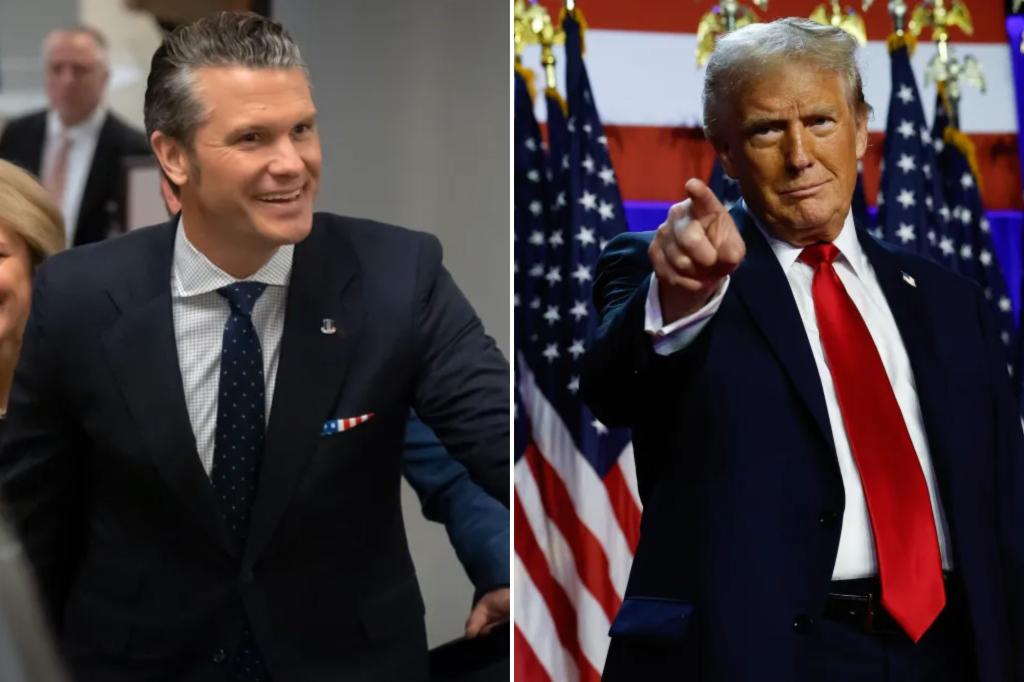Donald Trump’s nomination of Pete Hegseth for Secretary of Defense has sparked both enthusiasm and controversy. While Trump expressed confidence in Hegseth’s eventual confirmation, citing positive feedback from senators and highlighting his military background and academic credentials, the nominee faced significant scrutiny regarding past allegations. Hegseth, a former Fox News personality and Army veteran, engaged in a week-long campaign on Capitol Hill to garner support, addressing concerns about alcohol abuse, sexual impropriety, and financial mismanagement. Although a small number of Republican “no” votes could potentially derail his confirmation, initial reports suggested a lack of outright opposition within the GOP.
Trump’s unwavering support for Hegseth stemmed from a long-standing acquaintance, bolstered by Hegseth’s consistent focus on military matters. The President-elect emphasized Hegseth’s intellect and unwavering dedication to the military, portraying him as a single-minded individual driven by a deep passion for national defense. Furthermore, Trump underscored the positive feedback he had received from senators regarding Hegseth’s suitability for the role, suggesting a growing wave of support for the nominee. This positive sentiment was echoed in public statements by senators like Joni Ernst, who, while not fully endorsing Hegseth, committed to further dialogue and acknowledged his right to present his vision for the military.
Despite the seeming momentum, Hegseth’s nomination remained precarious. His past actions, brought to light through anonymously sourced media reports, posed a significant challenge. Hegseth vehemently denied these allegations, characterizing them as a concerted effort to sabotage his confirmation prospects. He portrayed himself as a victim of a calculated media smear campaign, designed to undermine his reputation and derail his nomination. This narrative of unfair targeting resonated with some of his supporters, who viewed the media scrutiny as politically motivated.
The debate surrounding Hegseth’s military service added another layer of complexity. While some questioned the significance of his Bronze Stars, others, including his former Fox News colleague Will Cain, rallied to his defense. Cain publicly showcased a commendation medal awarded to Hegseth for his role in capturing high-value targets linked to Al Qaeda in Iraq, highlighting his contributions to counter-terrorism efforts. This public display of support aimed to counter the narrative that Hegseth’s military experience was being unfairly downplayed or misrepresented.
The controversy surrounding Hegseth’s nomination underscored the deep political divisions within the nation and the heightened scrutiny facing political appointees. His background as a conservative media figure and vocal Trump supporter undoubtedly contributed to the polarized reactions to his potential appointment. While his supporters lauded his military service, patriotism, and alignment with the President-elect’s vision, critics questioned his qualifications, temperament, and past conduct.
The unfolding confirmation process promised to be a closely watched affair, with the outcome likely hinging on the ability of Hegseth to address the concerns raised about his past and to convince a sufficient number of senators of his suitability for the critical role of Secretary of Defense. His ability to navigate this challenging political landscape would determine whether he would ultimately assume leadership of the Pentagon or become another casualty of the deeply partisan political climate.










